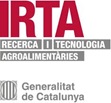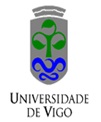Further information
SPECIFIC AGREEMENT no.1 “MANAGEMENT AND SCIENTIFIC COORDINATION”
SPANISH AGENCY FOR FOOD SAFETY AND NUTRITION (AESAN)

AESAN is responsible for facilitating the cooperation of the other Specific Agreements and their scientific progress. The tasks entrusted to AESAN are addressed to assure collaboration among all participants of the project and ensuring scientific coherence and the integration of results. Implementing a regular communication is other of its responsibilities, as well as leading the Governing Board and the Advisory Board to assure that the objectives of the FPA are achieved in a global way.
SPECIFIC AGREEMENT no.2 “EPIDEMIOLOGY”
INSTITUTE OF HEALTH CARLOS III (ISCIII)

ISCIII is responsible for the establishment of a ciguatera case definition, and the identification of data sources for outbreaks and cases of this illness. A surveillance protocol for the ciguatera is designed by ISCIII according to the data sources information collected from EU Member States. All the information gathered is assessed using statistical analysis software to eventually produce a report on the ciguatera incidence and the epidemiological characteristics, in order to achieve the main goal of the Specific Agreement.
SPECIFIC AGREEMENT no.3 “EVALUATION OF CIGUATOXINS IN SEAFOOD AND ENVIRONMENT”
INSTITUTE FOR RESEARCH AND TECHNOLOGY IN FOOD AND AGRICULTURE (IRTA)

The work carried out by IRTA is based on the toxicity evaluation of Gambierdiscus spp and the content of ciguatoxins in fish. To achieve this task, a cell-based assay is established and used by IRTA as a screening method. Once Gambierdiscus is evaluated, cultures are identified by morphological and genetic analysis to identify the type of ciguatoxins. The most interesting toxicogenic Gambierdiscus strains are produced at large scale to obtain phase 1 reference material in collaboration with UVigo. Besides, IRTA is responsible for obtaining environmental information at sampling areas, and the data may be used in future projects to study ciguatera and population dynamics of the microalgae and developed predictive models considering scenarios of climate change. In the case of fish, several species are captured in areas where contaminated fish or Gambierdiscus has been reported (Canary Islands, Madeira, Crete, Cyprus and Balearic Islands). To conduct this task, a sampling strategy has been designed to assess the presence of ciguatoxins in different fish tissues. Phase 1 reference material from fish (positive and negative results) is obtained for further studies. All positive samples identified by cell-based assays are delivered to the leader of Specific Agreement no.4 “Characterization of ciguatoxins”, in order to confirm the presence of these toxins. Throughout the Project, an important work of literature search is carried out by IRTA to further understand the ecological mechanisms leading to toxin accumulation in fish and to predict blooms of microalgae producing toxins.
SPECIFIC AGREEMENT no.4 “CHARACTERIZATION OF CIGUATOXINS”
UNIVERSITY OF VIGO

Fish samples screened within Specific Agreement no.3 are analysed by University of Vigo for an initial confirmation in order to obtain standards. A method for confirmation (LC-MS/MS) is developed and validated by UVigo to confirm the identity of the toxins involved in the contamination of phytoplankton and fish samples during the Project. Samples confirmed as positive are selected according to their profile and they are used to prepare fish tissue reference materials (FTRM). Finally, an interlaboratory test facilitates the assessment of methodologies developed within the Project and the intercomparative evaluation of the ciguatoxins profiles.